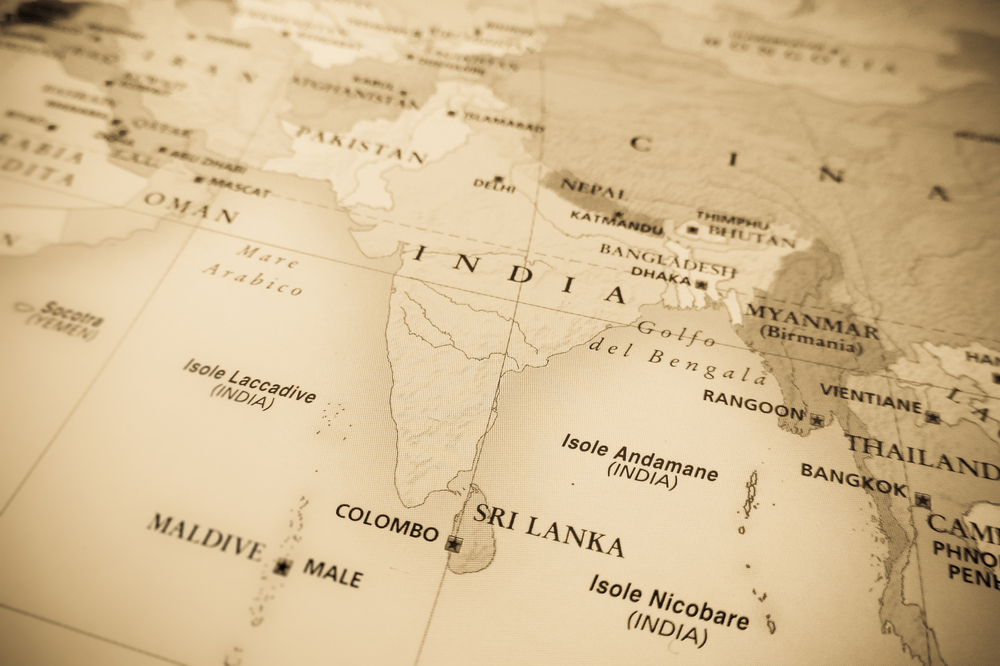India’s Peripheral States Still Suffer Democracy and Development Deficits

Please note that we are not authorised to provide any investment advice. The content on this page is for information purposes only.
Indian Prime Minister Narendra Modi’s election promises included setting up ‘an institute of big data and analytics’ to promote ‘predictive science’. However, no one is hearing very much on the statistical front since the elections. Despite his party’s enthusiasm for real-time data and big data during the campaign, there are no easy solutions to the lack of good quality data for Indian policymaking.
Indian Prime Minister Narendra Modi’s election promises included setting up ‘an institute of big data and analytics’ to promote ‘predictive science’. However, no one is hearing very much on the statistical front since the elections. Despite his party’s enthusiasm for real-time data and big data during the campaign, there are no easy solutions to the lack of good quality data for Indian policymaking.
A country’s ability to generate and use information depends on both its administrative and technological capacities, as well as the structure of its polity and economy. For instance, a data deficit is both a cause and consequence of development and democracy deficits in India’s northeastern states and Jammu and Kashmir. Located along India’s northern and eastern periphery, the stagnant economies of these insurgency-affected, landlocked, hilly, and keeping inaccessible states afloat by federal spending. They are also home to India’s tribal and religious minorities.
India has some of the most robust government statistical machinery among developing countries. Yet its periphery suffers from a data deficit — data is unavailable or the available data is of poor quality. Most national level surveys either do not cover the northeast and Jammu and Kashmir or cover them irregularly. Some of the surveys that cover these regions do not have sufficiently representative samples to generate reliable estimates at the state level. In some states, the areas surveyed vary across years. In addition, in extreme cases, survey samples had to be drawn using old or even faulty census data.
The reliability of census data in states such as Nagaland, Jammu and Kashmir, Manipur, and Assam is moot. The 2001 census overestimated the Nagaland population by more than 25 percent. A similar problem affected the population estimates for parts of northern Manipur in 2001 and 2011. In Jammu and Kashmir, the 2011 census seemed to overestimate the male child population of Kashmir. The data deficit affects academic studies and government reports, as they are either restricted to ‘major’ states or end up using flawed or incomplete data for ‘minor’ states.
Democratic and development deficits define peripheral states and are interlinked to the data deficit. Political disturbances limit both the physical reach and legitimacy of the state. They also affect the state’s capacity to collect information. In extreme cases, the government may not be able to collect statistics at all. For instance, disturbed conditions prevented conducting the census in Assam in 1981 and in Jammu and Kashmir in 1991. A lack of trust in government institutions also contributes to non-cooperation with the government’s data collection machinery or even the instrumental manipulation of government data. In turn, faulty electoral rolls and incorrect community-level headcounts further reduce faith in the state and democratic processes, and encourage manipulation in future.
While it is widely acknowledged that good quality data is crucial for development planning, a lack of development also affects data quality. The economies of peripheral states are almost entirely dependent on government spending. Ethnicity divides these states and they have weak state institutions that cannot mediate between communities. Ethnic competition to capture scarce public resources often spills over into the statistical domain, leading to the manipulation of census and electoral rolls to secure greater representation in the legislature and ethnically homogenous administrative units. Manipulation affects both the quality of statistics and their public acceptability.
Development and democracy deficits are also related. The lack of development fuels insurgency and insurgency impedes development. Insurgents try to disrupt democratic processes and development projects. They equate participation in them with submission to the mainland’s hegemony and the idea of India as a nation state. The disruption is an excuse by the state to suspend civil liberties, which pushes democracy further into the background. The resultant conflict impedes development.
The conflict over delimitation of electoral seats highlights the interrelated nature of these three deficits. In 2002, people in most peripheral states opposed census-based delimitation. In some of these states, the dominant community is not prepared to accept census data that do not uphold their numerical dominance. In addition, for the same reason, the smaller communities do not trust government data.
Modi’s party promised to overhaul the government’s data collection machinery in its parliamentary election manifesto. However, reforms addressing only the data deficit are bound to fail, as they will not solve the underlying structural problems. The government must also strengthen political institutions and attend to the development deficit. Relying on technological solutions alone could even aggravate the data deficit.
Overcoming underdevelopment, conflict and data deficits along India’s periphery is republished with permission from East Asia Forum




